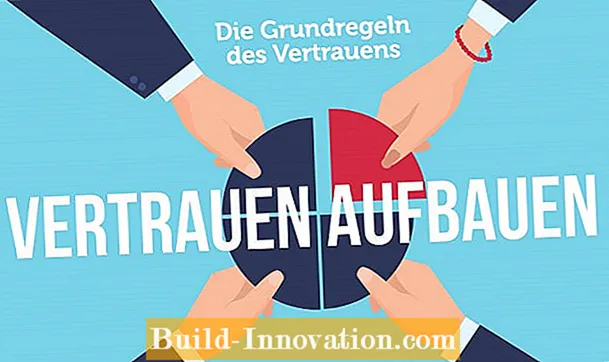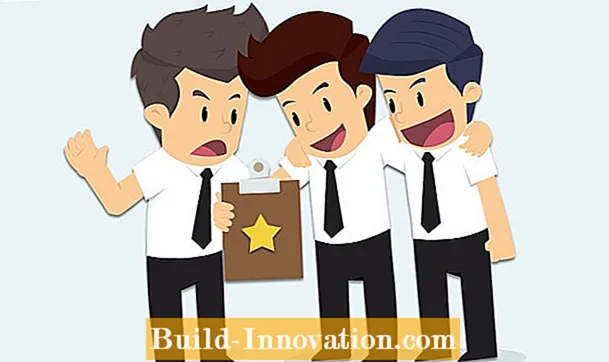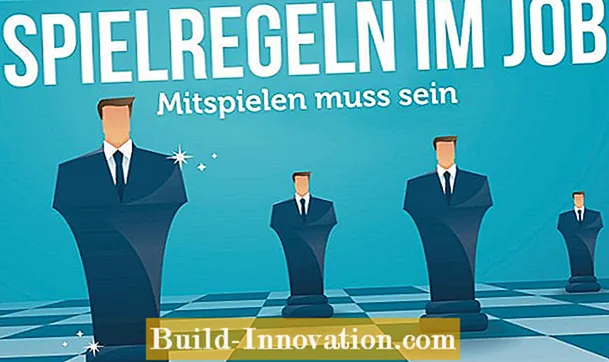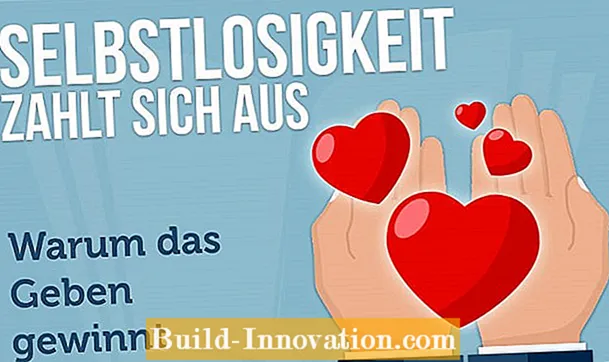Building Trust: The 5 Basic Rules of Trust

Content
- Psychology: Trust is a learned behavior
- Why is that?
- Trust is a learned decision
- Being able to trust helps relationships
- Trust minimizes complexity
- The paradox of trust
- Trust and familiarity: a difference!
- Healthy trust knows its limits
- Building trust: this is how you can gain trust
- The 5 basic rules of trust
- 1. Communicate
- 2. Remain authentic
- 3. Be honest
- 4. Be open about mistakes
- 5. Take your time
- Gain trust? Excuse yourself
- Crisis of confidence: how to gamble away trust
- Occupation Ranking: Who do people trust the most
“Trust is the beginning of everything.” That was the slogan that Deutsche Bank used to advertise its financial products in the 1990s - and thus hit the tone of the entire industry: You don't give your hard-earned money to anyone, you trust it at best to a person of serious repute. In theory anyway. Everyone knows what happened in practice: the great financial crisis followed a decade later and shook people's trust to an extent previously unknown. All over the world, people felt betrayed and sold by these financial experts. The trust - in this case it was the beginning of the end ...
Psychology: Trust is a learned behavior
According to the definition, trust is "the subjective belief (or feeling) of the honesty of another person". Those who trust believe that the other person's statements or actions are true and sincere. No society can function without this trust. It is the cement that makes (trusting) relationships possible in the first place. Private as well as professional.
Trust reduces control costs and makes us calm - until our trust is disappointed. “Can you no longer trust anyone?” Is the logical question of all those whose basic trust has too often been disappointed by people. The consequences of this:
Some become more suspicious, others downright hostile. They build a kind of psychosocial tank out of skepticism and suspicion, so as not to be duped again, according to the motto: "Whoever expects the wickedness of others can no longer be surprised badly." That is undoubtedly true, makes but lonely.
Although everyone has probably been ripped off or seen that their trust has been taken advantage of, the majority of us stick to the concept of giving others some kind of social credit. We are literally "disappointed", annoyed, we draw conclusions from it, but still trust - just maybe not that special person anymore.
Why is that?
The simple reason: trust is a learned behavior that can go back to childhood. Our trust comes from two core components:
- the Self-confidence, so the confidence in one's own abilities;
- and the Foreign trust towards other people.
Both are essentially empirical values: Those who learned early on that they can repeat success based on their ability and that the majority of people rewards trust will also remain trusting to trusting later on. You could also say ...
Trust is a learned decision
Those who trust willingly and confidently assume that something will develop as promised or hoped for. Whether that will actually happen is another matter. What is remarkable about it is:
The higher a person's IQ, the more trusting he or she is.
That is the result of a study by Oxford University. Of course, this does not mean “blind trust”. Rather, the scientists suspect that high intelligence correlates with better knowledge of human nature. Or to put it another way: Smart people know how to assess others better and therefore also more likely to know whom they can trust and who cannot.
This even has financial implications: When Jeffrey Butler, Paola Giuliano and Luigi Guiso from the University of California in Los Angeles researched trust, they found that those who trust a lot earn up to 20 percent more than those with great distrust.
Too much (blind) trust wasn't good for the wallet either: When the test subjects were asked to rate their trust on a scale from 0 to 10 (= maximum value), the top earners were at level 8. Those who were higher earned an average of 7 percent less.
Being able to trust helps relationships
One reason for the continued confidence is its positive effect - on us and others.
As early as 1968, the psychologists Robert Rosenthal and Lenore Jacobson carried out an experiment in American schools that entered literature as the Rosenthal or Pygmalion effect.
To this end, they informed some teachers that, based on their previous performance, they could take over a class in the coming school year made up of the most intelligent and best students. At the end of the school year, these classes were significantly better than the others, their grades and even the IQ of the students were around 20 points higher than the average.
Only the psychologists had lied: The classes were not composed of the best, but of a random selection. But because the students themselves believed they were among the best, and the teachers also trusted them more, the performance and learning curve rose. The second reason: trust works a little cognitive miracle ...
Trust minimizes complexity
Sooner or later we would all go crazy if we met anything new or every strange person with fear, defensiveness and distrust.
This is even more true in professional life: In addition, hardly any of us should have a complete overview of what is going on in our company, not even the bosses. That is why we simply have to rely on some statements from colleagues, suppliers and customers.
When the professor of management studies at McGill University in Montreal, Henry Mintzberg, once examined the daily routines of managers, he was surprised to find that hardly anyone worked on a thing for more than an hour. Well over 50 percent of the activities took less than nine minutes.
It is easy to predict that such managers will hardly base their decisions on extensive research or careful planning. Rather, they will rely on the little information that is currently available to them: experiences, references, hearsay. In short: because they lack a complete overview, they have to “trust” the few indications.
The paradox of trust
Ultimately, everyone wants a working atmosphere that is characterized by trust and mutual respect. But is that also realistic? At this point, at the latest, the so-called “paradox of trust” becomes apparent: Despite the advantages of trust, things are often different in the job: The climate is characterized by power games, competitive thinking, accusations or sometimes more, sometimes less hidden hostility. Or to put it another way: the louder the desire for a trusting environment, the further away the reality is. Otherwise you wouldn't have to constantly demand trust.
Trust and familiarity: a difference!
An exciting study by the University of California at Berkeley some time ago came to the conclusion that after just 20 seconds we instinctively decide who to trust - and who not. This is especially true for people with a high level of empathy.
However - and it has to be said - this is only a gut feeling at the time. A residual mistrust always remains.
But why is it like that? Why do we trust and distrust equally when the former actually has the greater advantages?
All too often it will trust With familiarity mistaken. A mistake. Both terms sound similar, but are at best related:
- familiarity comes about when you get to know each other better, work together for a while or do business with each other.
- However, the trust The inherent certainty of being able to really rely on the other only arises under crisis conditions.
It is only such bad weather phases that form the framework for the subsequent metamorphosis, in which familiarity proves itself and turns into trust. Or maybe not.
Lenin was told "Trust is good - control is better". As worthwhile as trust is: In its absoluteness trust is rightly ostracized as “blind” and “naive” and must inevitably be disappointed. Or short:
Healthy trust knows its limits
One of these limits is already in each and every one of us: Because trust has to prove itself, that is, it has to "grow", it cannot be forced or even accelerated. It is not an instant product, but a ripening process.
This means that there are consequences if we (want to) trust each other. This includes renouncing short-term advantages, all those nasty little tricks and tricks with which you can make a career but not build trust:
- profiling at the expense of others
- the concealment of one's own inadequacies
- Glossing over tasks
- Forge alliances
- exploiting weaknesses in colleagues and subordinates
That’s all over. Believing that this can succeed is already the first act of trust.
Building trust: this is how you can gain trust
If trust is so important, how can it be won? How can you build trust? Or is it enough to simply give it away as a gift, motto: "I trust you, so you can trust me too." The latter sounds pretty naive. It could be negligent.
Often, demanding trust in the job is just a hollow phrase that sounds good and makes you personable, but is never implemented in reality.
The fact is: Trust is an expression of an intact relationship - in private as well as at work.
That is why the same rules apply here as there as to how trust can be built and won. But you can tell from the passive formulation: Trust cannot be ordered, it is given. And for this it needs the following five basic rules.
The 5 basic rules of trust
1. Communicate
Nothing creates and maintains trust like talking to each other regularly and openly.
2. Remain authentic
Say what you mean, believe, feel, and do what you say. That is the basic principle of authenticity - or: trustworthiness. Of course, you shouldn't always divulge everything straight away and unfiltered. You can still pay attention to the cycle and timing.
3. Be honest
You can't say everything in a job. Some bosses know about trade secrets that not everyone in the company needs to know. But before you lie: you better keep quiet. Or do you honestly say, “I can't talk about that. Not yet."
4. Be open about mistakes
This point deserves an extra mention because it is so often suppressed in the job. Bosses in particular, role models, should prove that making mistakes is not a shame - just not learning anything from them. So let your colleagues share in your learning success!
5. Take your time
Neither Rome nor trust can be built in a day. Last but not least, at some point it also takes a practical test to consolidate the bond. Trust is good, but evidence in due course is better. In addition, there are other behaviors that strengthen and promote mutual trust (at work):
- Openness to suggestions and dissenting opinions.
- Honesty about your own intentions.
- Interest in employees / colleagues and their professional and personal problems.
- An invitation to colleagues to make decisions too.
- An open and fearless culture of discussion in meetings.
- Generosity in sharing knowledge and contacts.
- Make promises - and keep them.
- A culture of criticism that transforms ideas of all kinds into learning processes.
- Fair and transparent performance appraisal - and appropriate payment.
PS: You can also download the basic rules of trust here as a PDF free of charge.
Gain trust? Excuse yourself
If you want people to trust you, make excuses for things that are beyond your control. For example, for force majeure or for the rain.
No joke! The finding is based on a study by Alison Brooks from Harvard Business School. During the experiments, actors asked random passers-by for their cell phones. For example: “Sorry for the bad rain, but could I just borrow your cell phone?” Of course, one thing has as much to do with the other as bikinis have with Christmas. Nevertheless, the bad weather excuse had a massive impact on success: 47 percent of passers-by gave the mimes their smartphone - in contrast to 9 percent when they were only asked for the device. "Apologies have a significant impact on our confidence," says study leader Alison Brooks, "even in the complete absence of a reason for exculpation." It acts like an icebreaker - even when apologizing for the rainy weather is obviously pointless.
Crisis of confidence: how to gamble away trust
Of course there is also the opposite way: to gamble away trust. Because words are cheap, whoever uses them too often without following actions only arouses the suspicion of being a smoke candle thrower, someone who says one thing to disguise that he is doing the other.
That is why you will find a list here of how the trust of others can be shaken, if not destroyed at all. Take this list as a checklist: Anyone who could tick more than five points is well on the way to losing trust:
- They don't keep to agreements, arrangements, promises.
- You take care of your own gain first.
- You avoid compromises and only maximize your own profit.
- You want to control everything and always instead of delegating.
- Your words and actions are obviously contradicting each other.
- You hide important information from colleagues.
- You lie to those around you.
- They primarily look to others to blame - and publicly accuse them.
- You criticize more often than you praise. Constructive feedback is rare for you.
- You disregard confidentiality and participate in the radio.
- You make lonely decisions and don't allow anyone to help you.
- You play down the strengths and talents of others (in order to look better yourself).
- They fail to encourage others or help them develop.
- They never ask for advice or help.
- You are a machine, you completely ignore private matters at work (including humor).
- They perceive any form of criticism as a personal attack (and strike back accordingly).
- You try to nip in the bud discussions that could damage your image.
- They try to avoid or downplay all kinds of conflicts.
- You use meetings primarily as a stage for self-expression.
- They forge alliances and intrigues from behind.
- They never apologize for mistakes, misunderstandings, or bad behavior.
Everything dangerous, because ...

Occupation Ranking: Who do people trust the most
Would you confide in a doctor? Clear. A pastor? For sure. A lawyer? As well. They are all bound by confidentiality. In addition, they can only work for you if there is a mutual trust. But what about other professions - where this basis does not necessarily exist?
The Society for Consumer Research (GfK) has examined this more closely - and poured it into a job ranking. These are the jobs that enjoy the highest level of trust in Germany:
Firefighters: 94 percent
Pilots: 93 percent
Nurses: 91 percent
pharmacist: Percent
doctors: 86 percent
police officers: 73 percent
Farmers: 69 percent
Teacher: 60 percent
Judge: 59 percent
Meteorologists: 57 percent
Priest / pastor: 55 percent
taxi driver: 55 percent
Lawyers: 50 percent
Journalists: 27 percent
Tour operator: 27 percent
Financial advisor: 20 percent
Soccer player: 17 percent
Union leader: 17 percent
car seller: 11 percent
Politician: 6 percent



